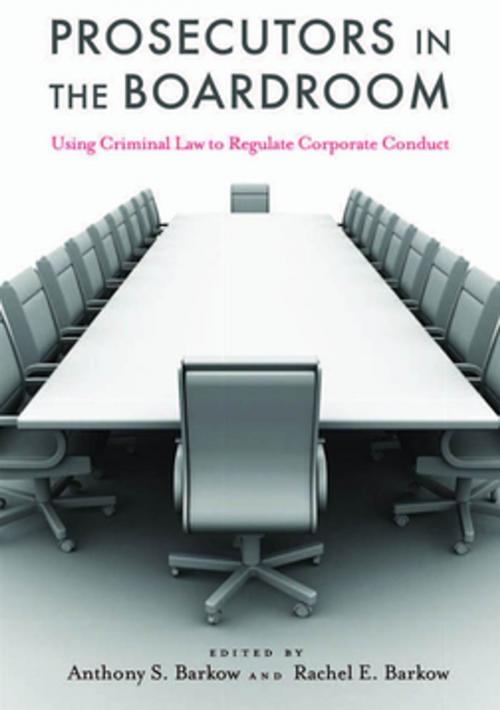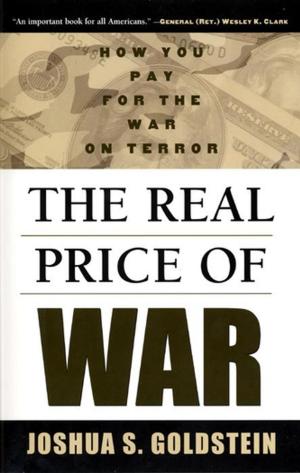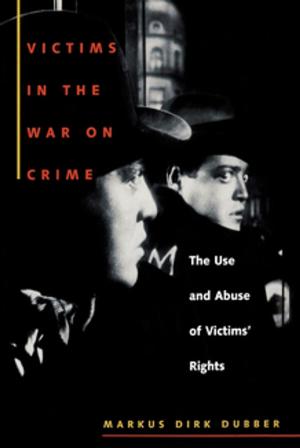Prosecutors in the Boardroom
Using Criminal Law to Regulate Corporate Conduct
Nonfiction, Reference & Language, Law, Corporate| Author: | ISBN: | 9780814723142 | |
| Publisher: | NYU Press | Publication: | April 18, 2011 |
| Imprint: | NYU Press | Language: | English |
| Author: | |
| ISBN: | 9780814723142 |
| Publisher: | NYU Press |
| Publication: | April 18, 2011 |
| Imprint: | NYU Press |
| Language: | English |
Who should police corporate misconduct and how should it be policed? In recent years, the Department of Justice has resolved investigations of dozens of Fortune 500 companies via deferred prosecution agreements and non-prosecution agreements, where, instead of facing criminal charges, these companies become regulated by outside agencies. Increasingly, the threat of prosecution and such prosecution agreements is being used to regulate corporate behavior. This practice has been sharply criticized on numerous fronts: agreements are too lenient, there is too little oversight of these agreements, and, perhaps most important, the criminal prosecutors doing the regulating aren’t subject to the same checks and balances that civil regulatory agencies are.
Prosecutors in the Boardroom explores the questions raised by this practice by compiling the insights of the leading lights in the field, including criminal law professors who specialize in the field of corporate criminal liability and criminal law, a top economist at the SEC who studies corporate wrongdoing, and a leading expert on the use of monitors in criminal law. The essays in this volume move beyond criticisms of the practice to closely examine exactly how regulation by prosecutors works. Broadly, the contributors consider who should police corporate misconduct and how it should be policed, and in conclusion offer a policy blueprint of best practices for federal and state prosecution.
Contributors: Cindy R. Alexander, Jennifer Arlen, Anthony S. Barkow, Rachel E. Barkow, Sara Sun Beale, Samuel W. Buell, Mark A. Cohen, Mariano-Florentino Cuellar, Richard A. Epstein, Brandon L. Garrett, Lisa Kern Griffin, and Vikramaditya Khanna
Who should police corporate misconduct and how should it be policed? In recent years, the Department of Justice has resolved investigations of dozens of Fortune 500 companies via deferred prosecution agreements and non-prosecution agreements, where, instead of facing criminal charges, these companies become regulated by outside agencies. Increasingly, the threat of prosecution and such prosecution agreements is being used to regulate corporate behavior. This practice has been sharply criticized on numerous fronts: agreements are too lenient, there is too little oversight of these agreements, and, perhaps most important, the criminal prosecutors doing the regulating aren’t subject to the same checks and balances that civil regulatory agencies are.
Prosecutors in the Boardroom explores the questions raised by this practice by compiling the insights of the leading lights in the field, including criminal law professors who specialize in the field of corporate criminal liability and criminal law, a top economist at the SEC who studies corporate wrongdoing, and a leading expert on the use of monitors in criminal law. The essays in this volume move beyond criticisms of the practice to closely examine exactly how regulation by prosecutors works. Broadly, the contributors consider who should police corporate misconduct and how it should be policed, and in conclusion offer a policy blueprint of best practices for federal and state prosecution.
Contributors: Cindy R. Alexander, Jennifer Arlen, Anthony S. Barkow, Rachel E. Barkow, Sara Sun Beale, Samuel W. Buell, Mark A. Cohen, Mariano-Florentino Cuellar, Richard A. Epstein, Brandon L. Garrett, Lisa Kern Griffin, and Vikramaditya Khanna















